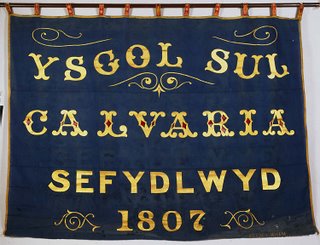The Church & Young People 5: Concluding Thoughts
 I have presented three examples of the attempts to churches to dealwith young people. Lloyd-Jones at Sandfields ended the membership candidates' meeting, believing that this was producing false conversions, and expected young people to take a full part in the normal activities of the Church. J. W. Owen at Heath re-orientated the activities of young people towards spiritual, rather than material things, the centrepiece being a fellowship meeting on Saturday evenings for prayer and testimony. Portland Street Congregational Church provided leisure activities for their young people. What conclusions can be drawn from our study?
I have presented three examples of the attempts to churches to dealwith young people. Lloyd-Jones at Sandfields ended the membership candidates' meeting, believing that this was producing false conversions, and expected young people to take a full part in the normal activities of the Church. J. W. Owen at Heath re-orientated the activities of young people towards spiritual, rather than material things, the centrepiece being a fellowship meeting on Saturday evenings for prayer and testimony. Portland Street Congregational Church provided leisure activities for their young people. What conclusions can be drawn from our study?While Lloyd-Jones ended young peoples' activities, I am not sure that this was not over-reaction. Having been received into membership at Llangeitho while yet unconverted, Lloyd-Jones was only too aware of the danger of producing false professions, as well as the danger of falling prey to modern psychological techniques. While Lloyd-Jones could do this, however, it seems to me that J. W. Owen's answer was closer to being correct. Young people could organise games outside the church's time, but the church's provision was focussed on things that are above. Even if Portland Street's table tennis table and billiards table had not been deserted for pop records, it is impossible to imagine games and hikes producing pastors, missionaries and evangelists, or even regenerated church members.
The desertion of the games provided by Portland Street must also be examined. The deacons had provided what they felt young people wanted. And, while that fashion lasted, the rooms were full. However, once the fashion changed, the rooms emptied. All youth work has its ups and downs, but we can be assured of this one thing. The Holy Spirit will never go out of fashion, and it is He that must be truly leader of our young people.
Labels: The Church and Young People

1 Comments:
My local church (Met Tab) is probably closer to J. W. Owen's model.
Do you think that being in a church-going society does affect the way we do these things?
Had MLJ or JWOwen lived in say, China, where Evangelical Christianity is persecuted, would they have adopted any of these "methods"?
Any thoughts on that?
Post a Comment
<< Home